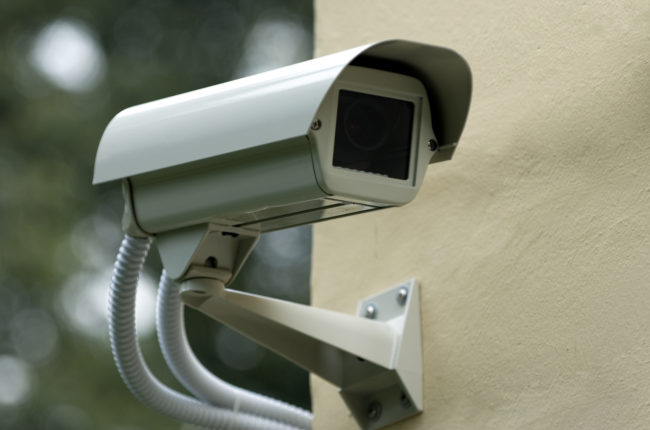We’re living amidst an avalanche of technology and a lot of it is pertinent to the real estate industry. Some of it seems to have snuck up on us, however, and it’s a bit like the Wild West out there. Believe it or not, there are real estate tech ethics that professionals can, and should, be employing in their real estate practices.
Need an online presence that clearly establishes your real estate knowledge and experience? Check out LeadSites!
Security cameras in homes for sale

There are laws regarding recording other people’s conversations, but Janet wasn’t aware of them. And, the home security camera she installed a year before selling her home not only recorded a video of what went on in her home, but audio as well.
So, when the house went on the market, she watched and listened to every potential buyer that came through her door. She knew how much one party was going to offer, which repairs they’d be requesting and even that she is an impeccable housekeeper.
Was she wrong to take advantage of technology to gain the upper hand in negotiations? We suppose the answer to that varies depending on where you fall in the real estate tech ethics debate.
The truth is, 15 percent of home sellers spy on potential buyers via home security systems. Not only that, but more of them said they would (67 percent) if they had the tech, according to a Harris Poll commissioned by NerdWallet.
Snooping laws vary by state, so you may want to check yours to see what’s legal and what’s not. Then, advice your listing clients of your findings.
Buyers’ agents should always caution clients that they may be under surveillance and to not say anything aloud that they wouldn’t want the buyer to hear. Hold the talk about repairs, price negotiations and the seller’s lousy taste in paint color until you leave the home.
The Real Estate Tech Ethics of Drones

“Can real estate agents take drones and swoop down, close by a house, and photograph a house from a drone?” asked Senator Diane Feinstein at an FAA hearing a couple of years ago.
Yeah, they can
Here’s some real estate news for you: More than one-third of the initial commercial drone-use applications that the FAA received in 2014 came from the real estate industry, according to Jon Boughtin in REALTOR® Magazine.
Back then, however, the drone operator had to hold a pilot’s license. That changed in 2016.
Now, the operator need only hold a remote pilot certificate with a small UAS rating (or be supervised by someone who does) and be at least 16 years of age, according to the Cape Cod & Islands Association of REALTORS®.
You’ll need to register your drone with the FAA. It only costs $5, whereas getting popped for flying an unregistered drone can cost you more than $27,000.
Then, there are the rules for flying the craft. These include flying below 400 feet, at least five miles from an airport, away from people and flight is permitted only in daylight, without specific permission from the FAA.
Local laws sometimes restrict drone flights over private property. In California, for instance, you can be liable for invasion of privacy just by entering the airspace above someone’s home without their permission.
Keep it ethical by never including a neighbor’s property in your listing photos.
Data

We know that you’re aware that your clients’ information is to be held in the strictest of confidence. Even when the relationship ends, you are legally and ethically required to keep their confidence.
Here’s a real estate tech ethics question for you: Are you still responsible if the information was snatched by a hacker? Apparently, you are, since you hadn’t taken the necessary steps to secure your systems.
“If a hacker accesses your customers’ personal and financial data, that becomes a full-scale breach that would likely trigger state requirements on reporting and other remediation steps, and could even subject your business to fines and other repercussions at the federal level,” Matthew Kletzli, senior vice president at Victor O. Schinnerer & Co. tells REALTOR® Magazine.
Then, there’s the hit to your reputation.
You have a responsibility to safeguard your client’s information and you have an obligation to safeguard yours and your broker’s reputation.
Social media
Did you know that the NAR treats your social media posts as marketing and, thus, the NAR Code of Ethics rules them?
“If you choose to advertise on social media platforms, you are responsible for ensuring that your usage is consistent with the Code of Ethics; local, state and federal laws; and all applicable real estate license laws and regulations,” according to the Northern Virginia REALTORS® Association.
You can catch up with what you can and can’t do here and here.
Ready for a real estate website that works as hard as you do? Learn more about LeadSites.
Looking to generate leads without violating tech ethics? Be sure to check out these hacks for real estate agents!
Turn any page on your site into a high-converting landing page. Learn more:
The post Real Estate Tech Ethics – Are You Violating Your Client’s Privacy? appeared first on Easy Agent Pro.
from theokbrowne digest https://www.easyagentpro.com/blog/real-estate-tech-ethics/
No comments:
Post a Comment